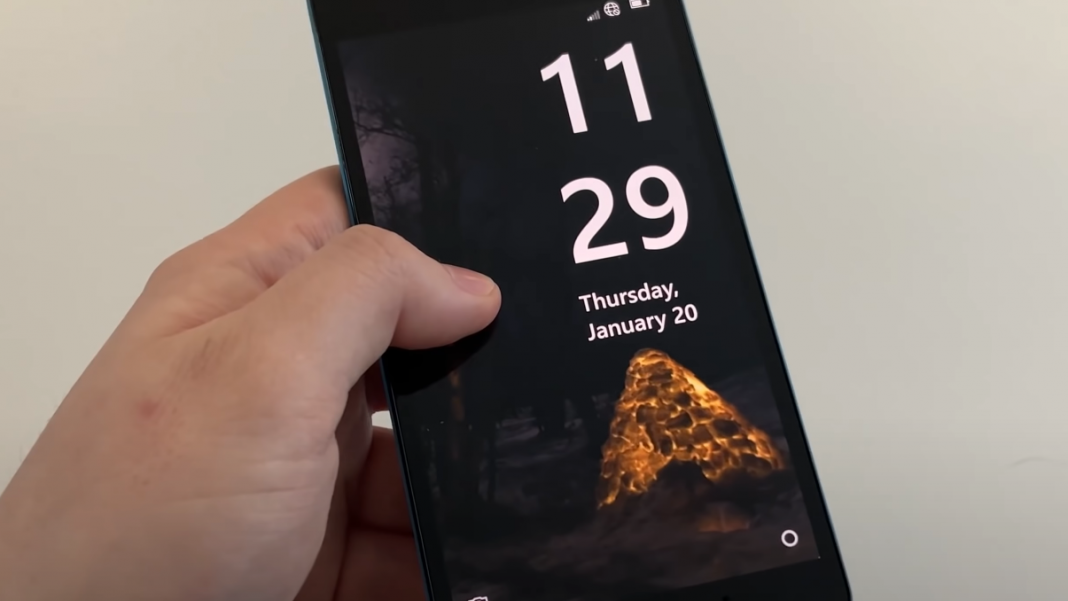Before releasing the Surface Duo running an adaptation of Android, Microsoft was apparently working on an Andromeda OS. The operating system, which was never (and should not be) released, had prototypes found by the Windows Central website and shows that the company planned to return to the mobile operating systems dispute on the two-screen device launched in 2020.
The prototype runs on a 2015 top-of-the-line Lumia 950 which, according to the website, was widely used to develop the Andromeda OS, even with a single display. It is evident that Microsoft designed the system with the Surface Duo as its focus, as the entire experience calls for the use of two screens.
At first glance, you can see similarities with the adapted Android of the Surface Duo: the lock screen is constructed similarly, with clock and dates placed on the right. In addition, the user can use a Stylus pen to scribble or write things down without needing any application, or even unlocking the device.
Want to stay on top of the best tech news of the day? Access and subscribe to our new youtube channel, Kenyannews News. Every day a summary of the main news from the tech world for you!
Instead of presenting a home screen filled with shortcuts to applications, Andromeda OS presents a very rudimentary “whiteboard”. The idea is apparently to allow annotations right from the home screen, without needing extra steps and, probably, this feature was never finalized.
Windows 10 Inheritance
In the lower left corner is the classic Windows button, which pulls up a “Start Menu” practically identical to that of Win 10, with Live Blocks, list of applications and more. On the opposite side is a shortcut for interacting with Cortana.
And it’s not just the Start Menu that was inherited from Windows 10: the transition screens and application interface hark back to the desktop operating system, too. Even the quick settings menu and Snipping Tool are similar to their desktop counterpart.
However, it is evident that the operating system was still under construction, both due to the lack of adaptations of Windows interfaces for use on laptops and the absurd slowness. During the demo, the speaker has to deal with very slow transitions, animations and interactions, such as the lack of responsiveness with the pen.
Even so, it is very interesting to note that Microsoft was thinking of returning to the mobile operating systems segment with the launch of the Surface Duo. Perhaps, having invested in a home system would have been better than betting on an Android adaptation — which later proved to be problematic.
